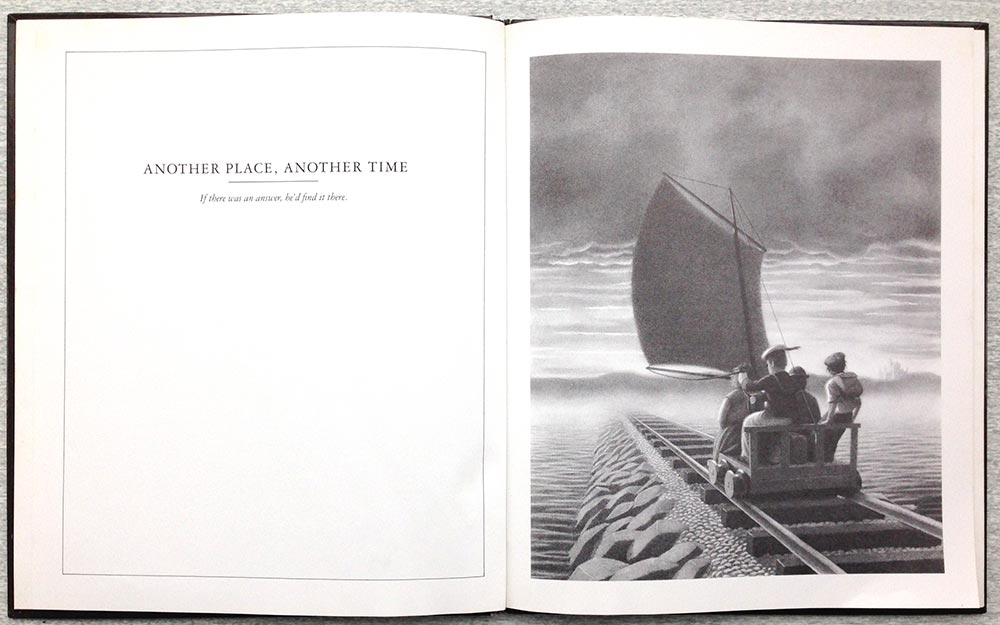Stories are waiting
I really like this advert for Eurostar, by AMV BBDO, which came out last autumn but is still being shown in the UK as I write.
Incidentally, there’s also a corresponding French-language ad promoting London (‘Tant d’histoires à venir à Londres’), in which the potential parent is a father rather than a mother.
Dialogue not monologue
As I’ve noted, many adverts claim the mantle of ‘story’ without much justification. This one does something altogether more elegant, and more powerful.
Usually, what we call ‘story’ is a text that the brand declaims unilaterally from on high, regardless of how kooky or quirky a tone of voice it uses. But in this ad, story is something that we have the choice to create, or co-create, for ourselves. Instead of listening to a monologue, we engage in a dialogue.
As the ad unfolds, we’re invited to explore and speculate on the stories implied by the rapid succession of intriguing images. Some (the marriage and pregnancy) are traced explicitly, while others (like the underground skulls) remain unexplained. As a viewer, it’s impossible not to fill in at least some of the blanks as you watch.
Found fragments
It reminds me of the children’s book The Mysteries of Harris Burdick, by Chris Van Allsburg, which presents a set of enigmatic illustrations, titles and captions from which you can elaborate your own tales. The fictitious backstory of ‘Harris Burdick’, supposedly the creator of the tableaux, gives them the feeling of long-lost treasures, like pottery fragments unearthed in a garden. The example below shows another cross-channel journey pregnant with possibility.

In both book and advert, the author gives up some of their authority. As we ‘lean in’ , the text itself steps away, leaving a space that we can explore. Instead of directing or persuading, the writing is content to gently cajole and suggest. This is ‘storyshowing’ rather than storytelling; the reader becomes the storyteller.
I can only show you the door. You’re the one that has to walk through it.
Spoken by Morpheus in The Matrix
This mechanic gives the Eurostar ad a wonderfully refined, almost metaphysical air. The tacit call to action is not to book our ticket, but to ‘write’ (i.e. live) the ‘story’ that awaits us. In a space where brands are all too willing to position life as a journey, this ad positions a journey as life.
Forking paths
Instead of passively listening to a monolithic story that is already written and known, we’re invited to actively choose from a range of stories that are not yet written, not yet known. In place of one fixed story that contrives to lead us to the product, the mechanics of narrative and imagination themselves communicate a very high-level product benefit: the chance to live a vivid, reckless, intoxicatingly rich life (if only for a weekend).
The maybe/maybe not dynamic of the marriage and pregnancy evokes Jorge Luis Borges’ story The Garden of Forking Paths, which posits a novel that tries to exhaust all the possible narrative routes that the hero could possibly take, as opposed to the single path of a linear narrative. There are also parallels with the many-worlds interpretation of quantum mechanics, which suggests that all possible alternative histories and futures are real, each existing in its own universe.
By riding one line, promises the ad, we can open up many more. This ambiguity and plurality is a very grown-up idea of story – and of travel, and maybe of life itself. As children, we’re eager to know what’s going to happen: we long for revelation, certainty and closure. But once we’re part-way through our story – maybe more than halfway – we might well feel like reeling in the thread and choosing another path. It’s not too late, whispers the ad in our ear. Much is still unwritten.
Footfalls echo in the memory
Down the passage which we did not take
Towards the door we never opened
Into the rose-garden.
T.S. Eliot, Burnt Norton
This mature but playful tone shows that the use of narrative needn’t infantilise brands or their audiences. Stories may be familiar from our early years, but that doesn’t mean we have to regress to childhood in order to enjoy them again. (Yes, I’m looking at you, John Lewis.)
The tagline, ‘stories are waiting’, makes the stories eager and welcoming by anthropomorphising them, while also including the people we’ve seen and the city itself. The idea of ‘waiting’ is a nice way to convey the idea of uncharted territory without resorting to clichés like ‘waiting to be discovered’.
He turned to me as if to say
‘Hurry boy, it’s waiting there for you’
Toto, lyrics to ‘Africa’
Overall, I think this is a really good ad that casts a powerful spell, sells the product beautifully and only gets better on repeat viewings. Et quoi d’autre veux-tu?
Comments (3)
Comments are closed.
I don’t know, I find the overt mention of stories a little clunky – as if the agency’s convinced the client of the power of storytelling and everyone involved is being a bit literal and and obvious about it. I can’t help feeling it’s a bit of rip-off of this: https://www.youtube.com/watch?v=nnsSUqgkDwU where the story unfolds without you having to be told “this is a story”.
By the way, if you like enigmatic, immersive and fragmentary storytelling, you should definitely book tickets for Punchdrunk’s The Drowned Man!
But people do tell stories about the people and things they encounter on holiday, and often describe them as such too. So I think mentioning stories is quite natural in context.
Have to say I agree with Tom, here. Fits perfectly with what they’re selling. And the tone is spot on.
The Google ad, on the other hand? Cheesy American crap. Rams the ‘story’ thang down your throat. Total mood film that should never have been shown outside of Google’s boardroom.